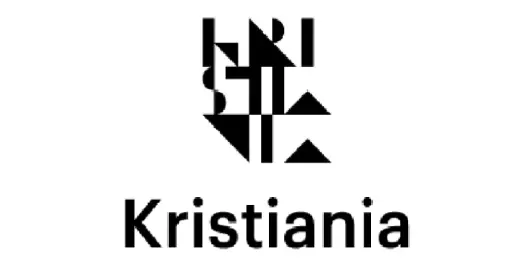Ledig stilling på Universitetet i Oslo
Blindern og Urbygningen (Foto: Wikimedia og Colourbox)
PhD research fellowship in Educational Measurement
Deadline: 31.05.2020
Job description
Universitetet i Oslo
The University of Oslo is Norway’s oldest and highest ranked educational and research institution, with 28 000 students and 7000 employees. With its broad range of academic disciplines and internationally recognised research communities, UiO is an important contributor to society.
The Centre for Educational Measurement at the University of Oslo (CEMO) provides a stimulating research environment by bringing internationally renowned substantive and methodological experts together. Research at CEMO combines basic research and applications of advanced measurement techniques to solve core educational problems. CEMO also contributes to the development of measurement competence through teaching and outreach. The centre is part of a broad international network and manages several externally funded research grants.
Applications are invited for a full-time position as PhD candidate at CEMO (Centre for Educational Measurement at the University of Oslo). The fellowship period is 3 or 4 years. For Research fellows that are employed for a period of 4 years, the position entails a compulsory workload of 25% that consists of teaching and supervision duties and research assistance. The preferred starting date is in fall 2020.
CEMO provides a stimulating research environment by bringing together internationally renowned experts in methodological and substantive research fields to solve core educational problems. The centre also contributes to the development of measurement competence through teaching and outreach and offers a Master of Science program in Measurement, Assessment and Evaluation. The centre is part of a broad international network and comprises about 25 employees from 10 countries.
More about the position
The PhD position is related to a joint project of CEMO and EQOP on the predictive validity of secondary school student’s exam grades, teacher grades and standardized test results for long-term life outcomes. Many studies exist which examine the concurrent correlation of different types of student assessments or the short-term effects of school grades on university grades. In contrast, there is little research examining long-term effects of student achievement beyond university and even less research comparing the long-term predictive power of the most common ways to assess student achievement. An important reason for this lack of research is that it poses operational challenges with respect to data fusion, theoretical challenges with respect to deriving sound hypotheses, and methodological challenges with respect to statistical modelling. Furthermore, we would like to identify the actual causal impact student achievement (as assessed in the various ways) has on life outcomes (also assessed in various ways; see below) and disentangle this effect from students’ socio-economic or educational conditions in early childhood.
We welcome applications of candidates with a strong background in educational or psychological research/measurement. Norway has rich data sets that allow for a broad range of research questions, including examining consequences of different types of teacher and exam grades or test results (e.g., in different subjects, at different time points during schooling) for different types of long-term life outcomes (e.g., salary, type of job, health issues) while controlling for early childhood background (e.g., parents’ education, years in kindergarten) with respect to different student groups (e.g., by gender, language background, regions or programs at VGS) or even with respect to changes over time (e.g., before or after a larger curriculum reform or professional development program).
There are many collaboration opportunities available so that the successful candidate will become a member of a larger research group. CEMO has several research projects related to educational assessments in Norway
EQOP investigates causes and consequenses of social inequality in childreen`s school achivement using Norwegian register data.
Mastery of the Norwegian language is not a prerequisite for applying, but is considered an advantage.
Candidates are advised to read one or several of these papers in order to familiarize themselves with the topic of the position. These papers may also inform the writing sample (we can send digital files on request):
- Duncan, G. J., Ziol-Guest, K. M., & Kalil, A. (2010). Early-Childhood Poverty and Adult Attainment, Behavior, and Health. Child Development, 81(1), 306–325. https://doi.org/10.1111/j.1467-8624.2009.01396.x
- Willingham, W. W., Pollack, J. M., & Lewis, C. (2002). Grades and Test Scores: Accounting for Observed Differences. Journal of Educational Measurement, 39(1), 1–37. https://doi.org/10.1111/j.1745-3984.2002.tb01133.x
- Vulperhorst, J., Lutz, C., de Kleijn, R., & van Tartwijk, J. (2018). Disentangling the predictive validity of high school grades for academic success in university. Assessment & Evaluation in Higher Education, 43(3), 399–414. https://doi.org/10.1080/02602938.2017.1353586
The research fellow must take part in the Faculty’s approved PhD program and is expected to complete the project within the set fellowship period. The main purpose of the fellowship is research training leading to the successful completion of a PhD degree.
The successful candidate will develop skills in quantitative methodology, statistical programming, and scientific communication during their PhD period.
Qualification requirements
- Applicants must hold a 2-years Master’s degree (120 ECTS) or an equivalent qualification in education, psychology, social sciences, statistics or similar fields related to educational measurement, minimum grade B (ECTS grading scale) or equivalent. The Master’s degree must include a thesis of at least 30 ECTS
- Fluent oral and written communication skills in English
In the assessment of applications, emphasis will be put on:
- the applicants’ academic aptitude for completing the research training program
- the writing sample, which must be submitted with the application
- training and experience with quantitative research methods and data-analysis
- the applicant’s personal suitability and motivation for the post, including his/her ability to collaborate
- other qualifications that meet the objectives of the position
By the time of appointment, the successful candidate must satisfy the requirements of admission to the PhD program of the Faculty of Education. These include minimum grade B (ECTS grading scale or equivalent) on the Master’s thesis.
We offer
- Salary NOK 479 600-523 200 per annum depending on qualifications in a position as PhD Research fellow, (position code 1017). Research fellows are normally allocated to pay grade 54, NOK 479 600 on appointment. The position is remunerated according to the Norwegian State salary scale
- Attractive welfare benefits and a generous pension agreement, in addition to Oslo’s family-friendly environment with its rich opportunities for culture and outdoor activities
How to apply
The application must include
- Cover letter statement of motivation and research interests
- CV (summarizing education, positions and academic work)
- Master thesis and other selected works suited to demonstrate the applicant’s fit to the positions announced, in particular documentation of training and experience with quantitative research methods and data-analysis (a strong record here will give a distinct advantage)
- A writing sample, in which the PhD candidate demonstrates his/her their understanding of the research topic, key concepts, potential research questions and methodological approaches (3-4 pages)
- Copies of educational certificates (academic transcripts only)
- Documentation of english proficiency
- List of reference persons: 1-2 references (name, relation to candidate, e-mail and phone number) (e.g., Master thesis supervisor(s))
The application with attachments must be delivered in our electronic recruiting system, please follow the link “Apply for this job”. Foreign applicants are advised to attach an explanation of their University's grading system. Please note that all documents should be in English (or a Scandinavian language).
As a rule, interviews will be conducted as part of the application process. Applicants are required to provide documentation of English language proficiency in the form of an academic degree from an English language university or an approved English proficiency test with a minimum required score (see this website).
When evaluating the application, emphasis will be given to the “project description” and the applicant’s academic and personal prerequisites to carry out the project.
Formal regulations
Please see the guidelines and regulations for appointments to Research Fellowships at the University of Oslo.
No one can be appointed for more than one PhD Research Fellowship period at the University of Oslo.
According to the Norwegian Freedom of Information Act (Offentleglova) information about the applicant may be included in the public applicant list, also in cases where the applicant has requested non-disclosure.
The appointment may be shortened/given a more limited scope within the framework of the applicable guidelines on account of any previous employment in academic positions.
The University of Oslo has an agreement for all employees, aiming to secure rights to research results etc.
Contact information
Apply for this job















